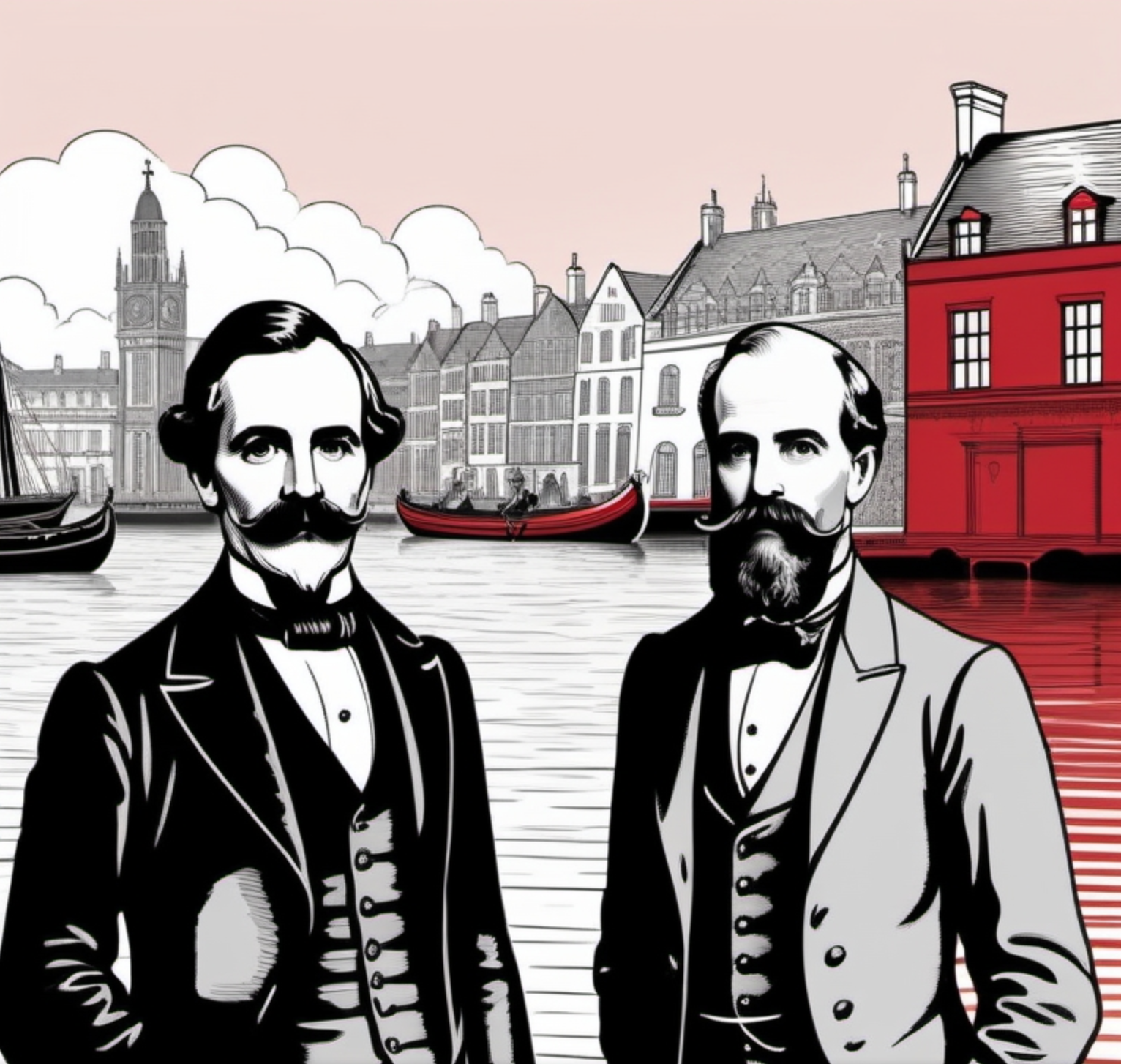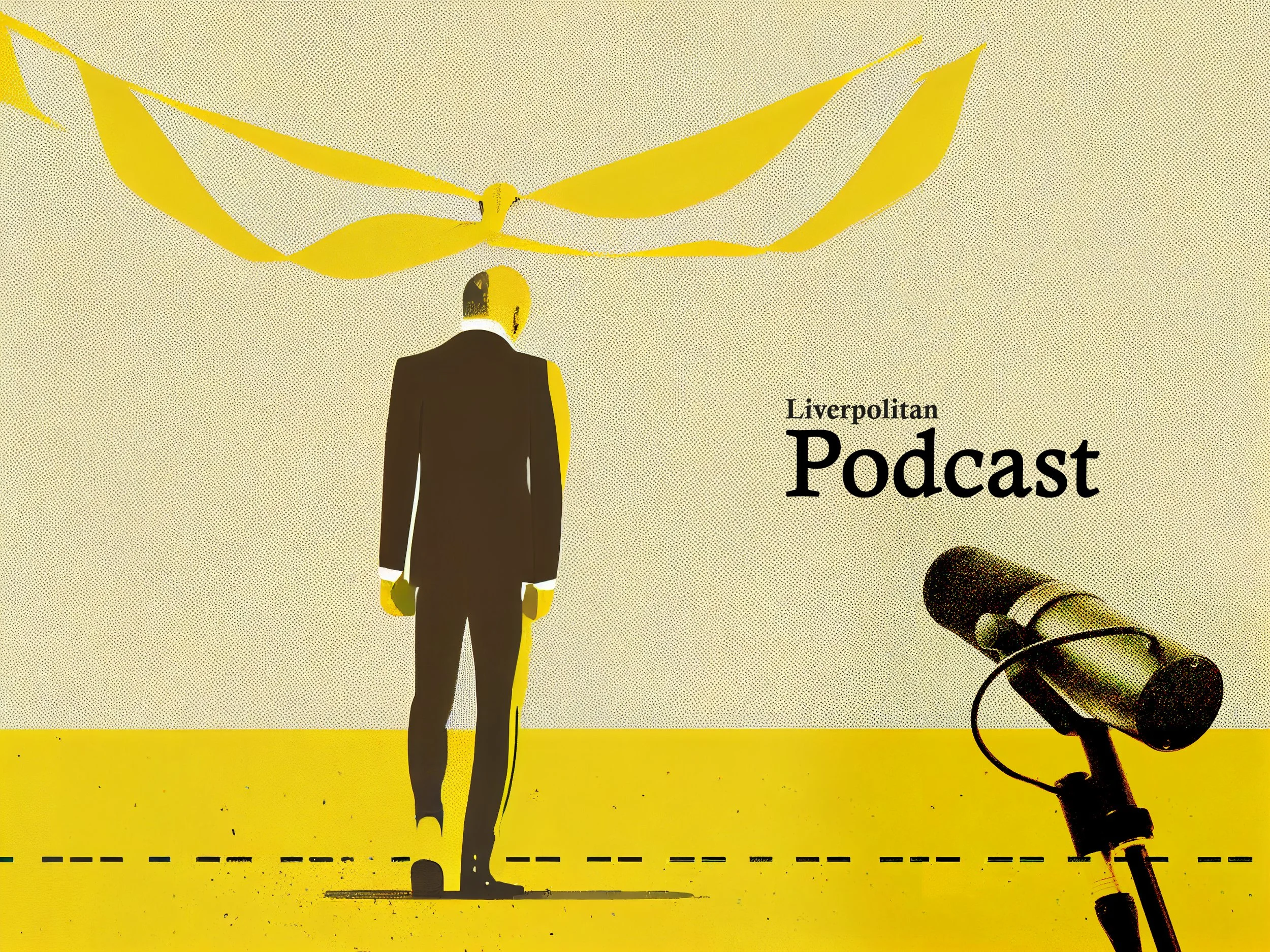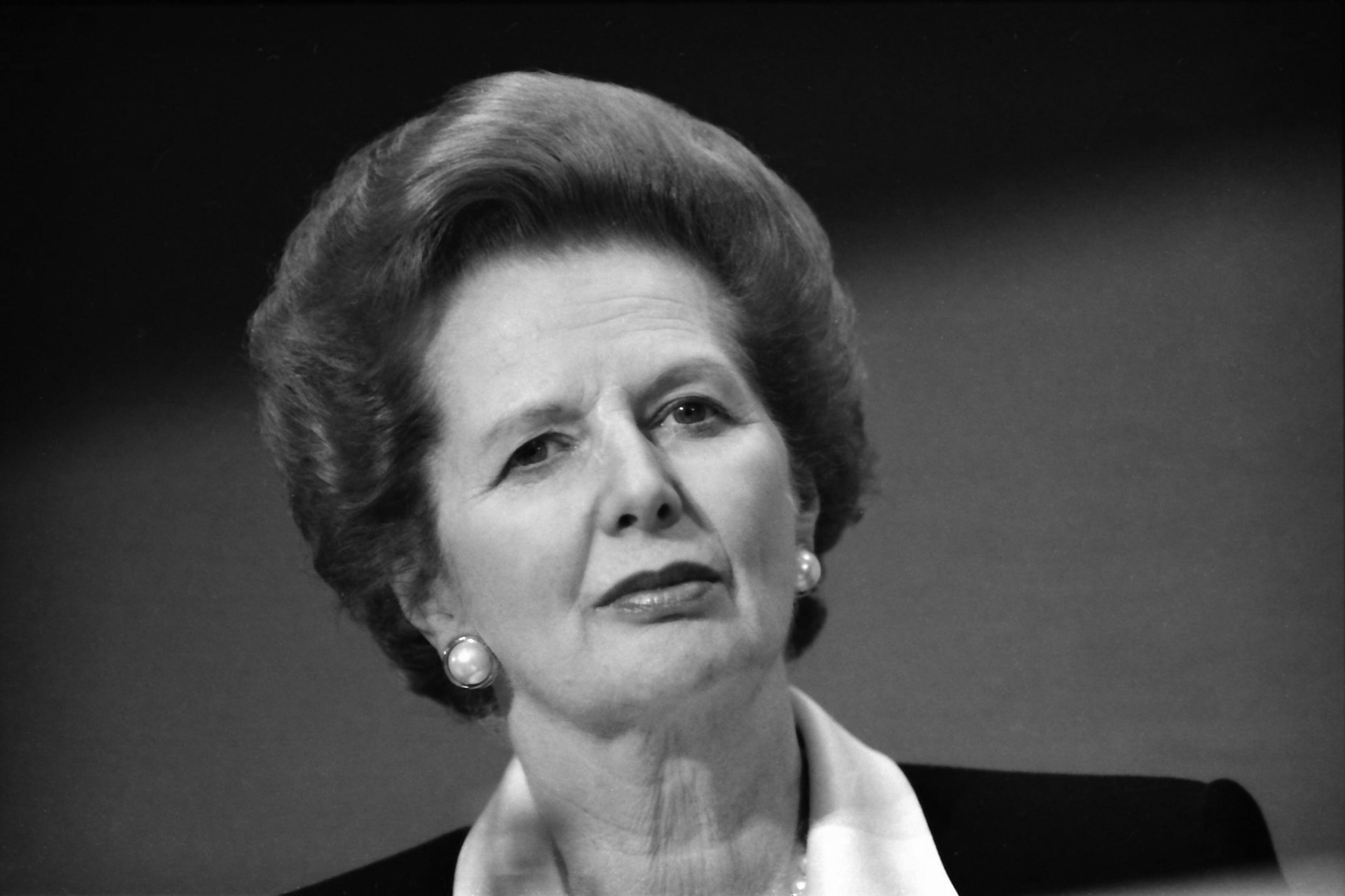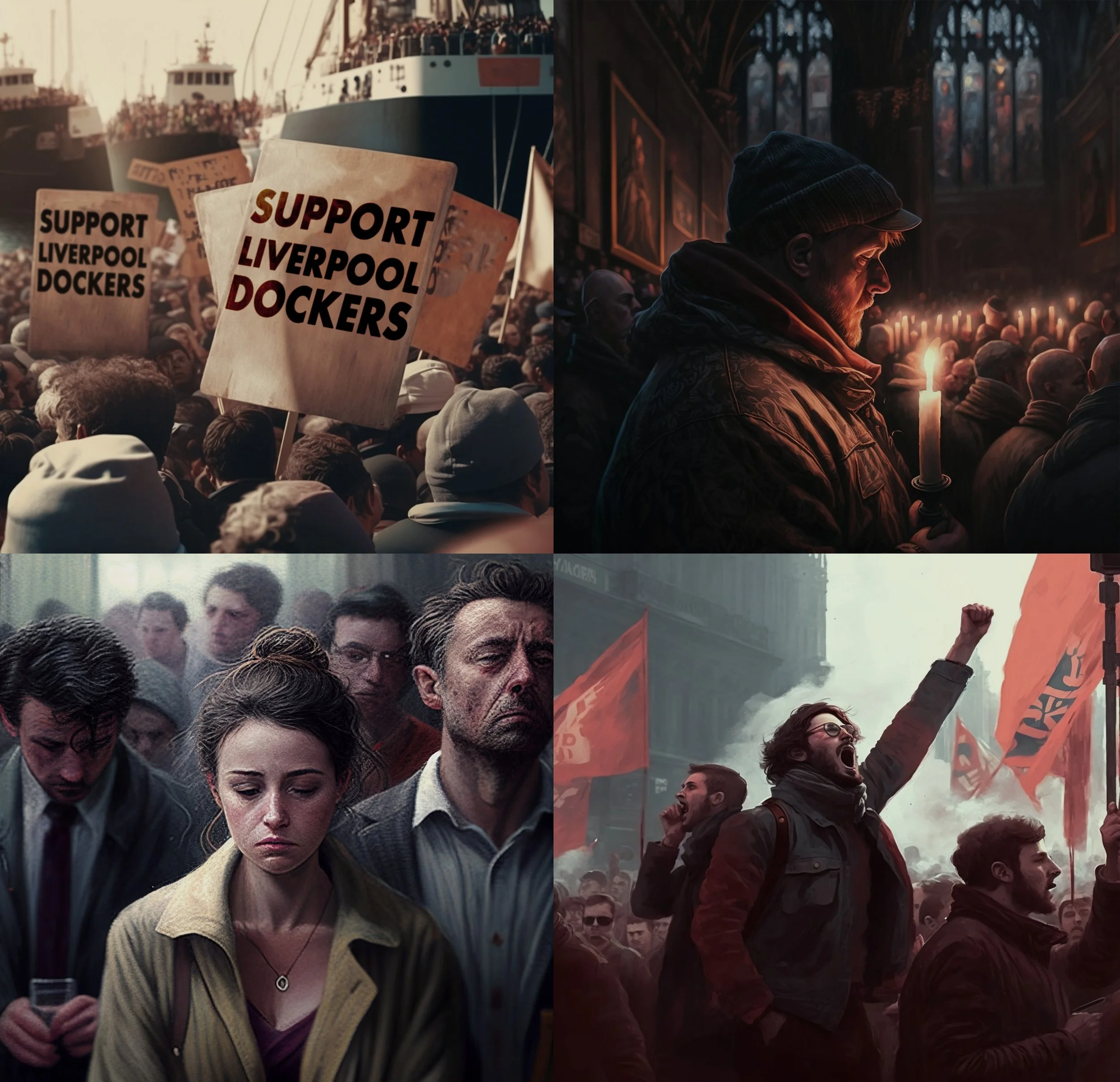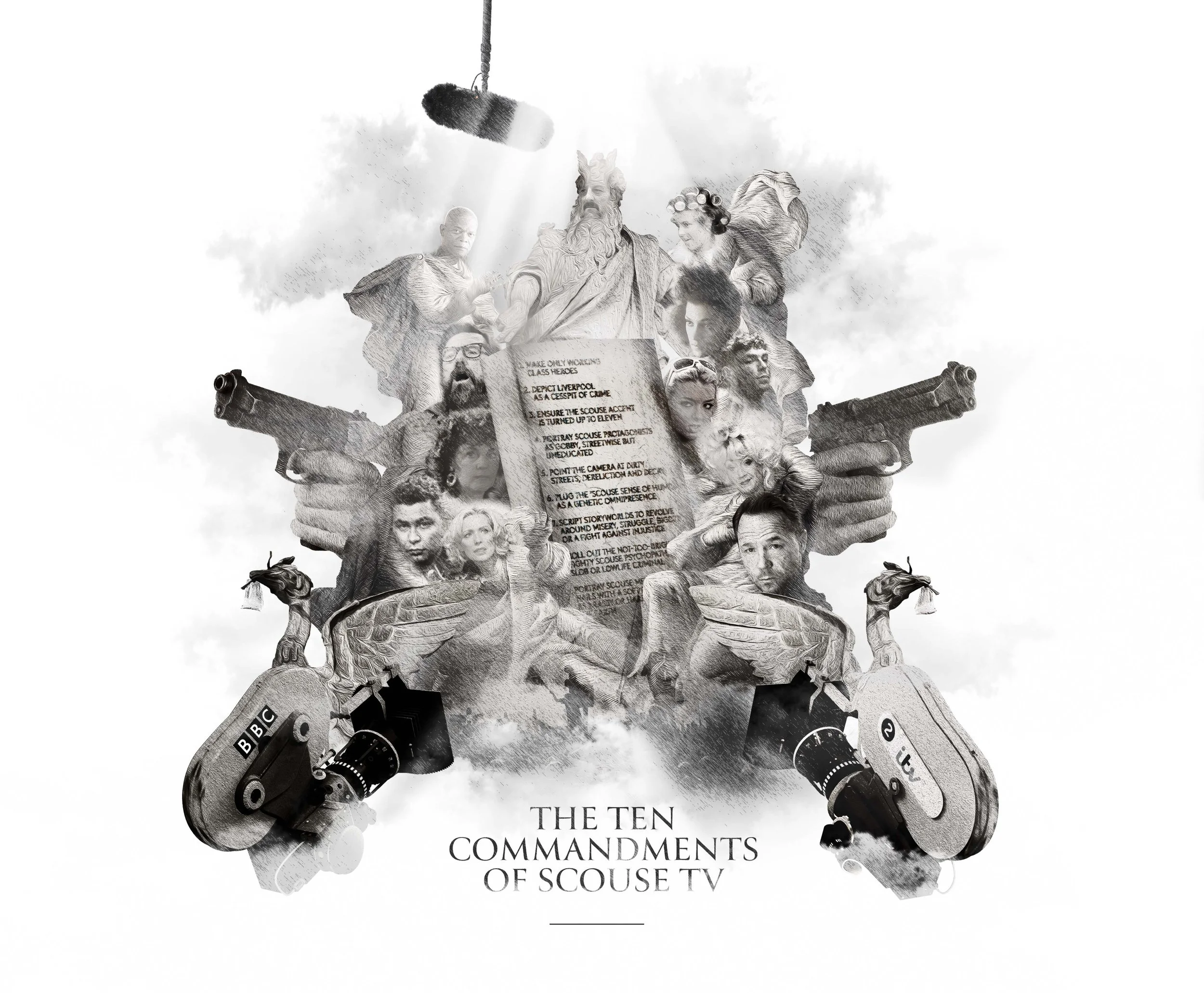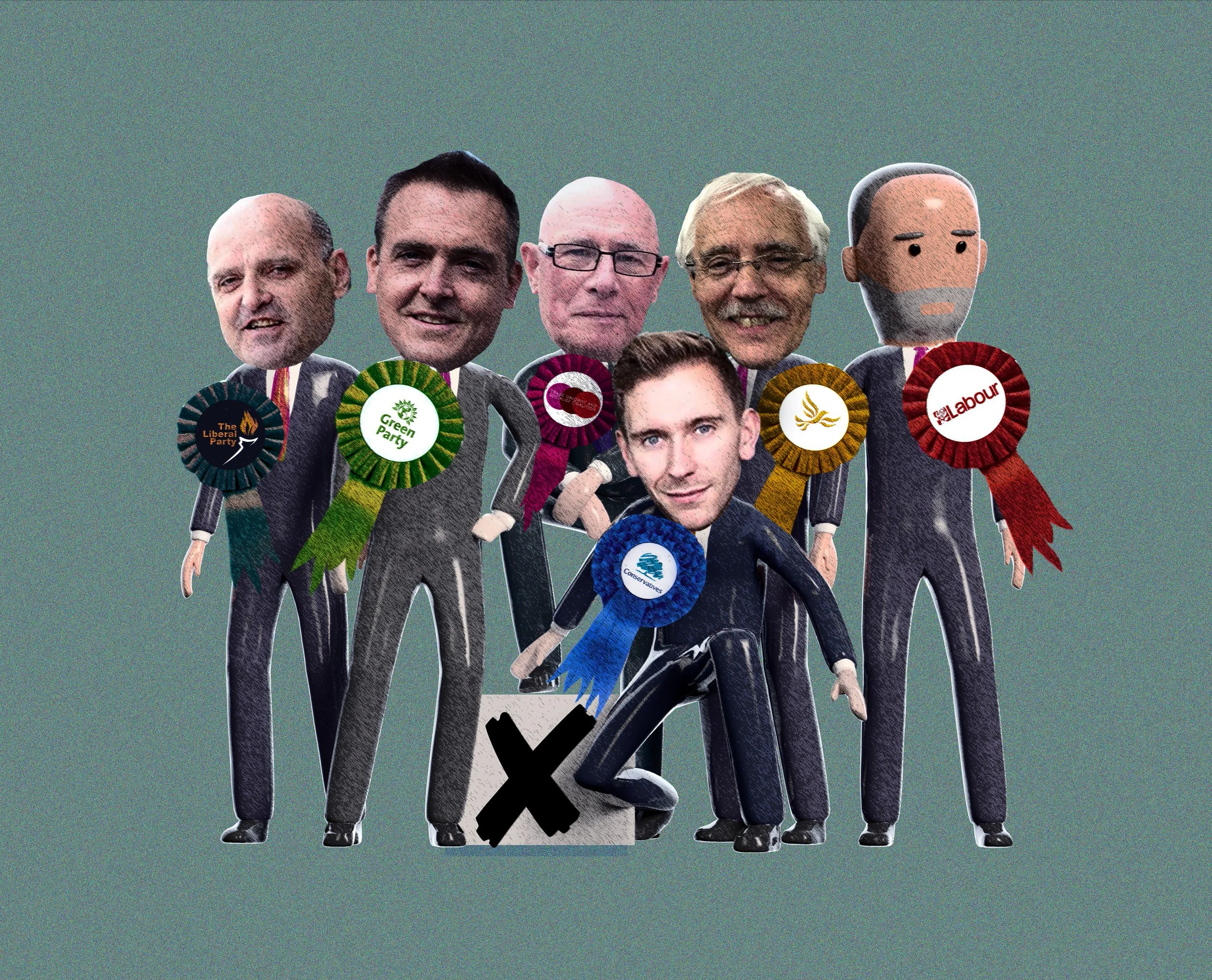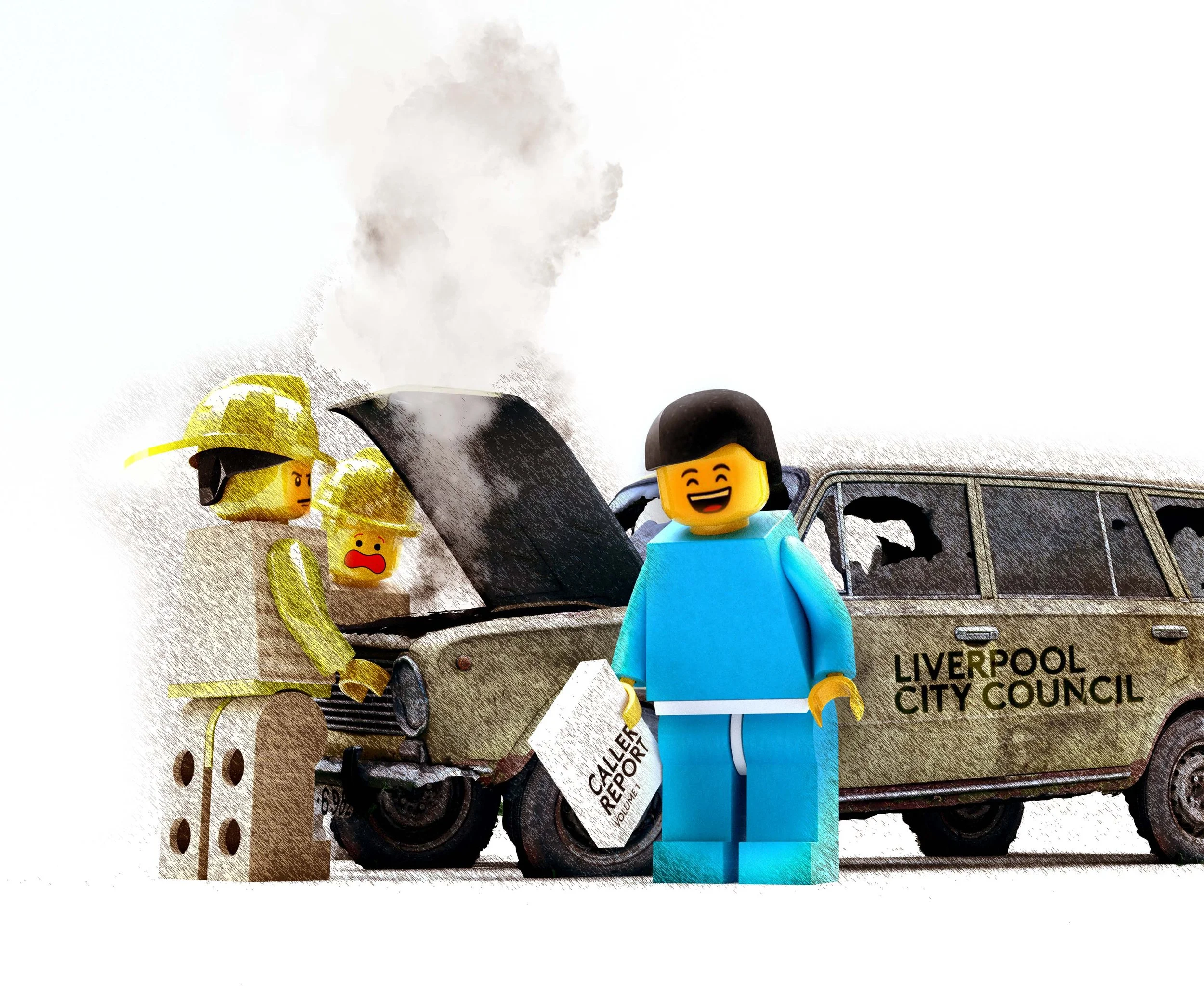Recent features
A life through books: Five decades of radical politics in Liverpool
From an up-bringing which instilled the values of peace and non-violence to fighting against fascist arson attacks on her bookshop, Mandy Vere has witnessed both formative and turbulent times in the city's long history. Now approaching retirement, she reminisces about her life as the longest surviving member of the News From Nowhere collective, Liverpool's, indeed one of Britain's, longest standing, most beloved, independent radical bookshops.
Jane Anderson
From an up-bringing which instilled the values of peace and non-violence to fighting against fascist arson attacks on her bookshop, Mandy Vere has witnessed both formative and turbulent times in the city's long history. Now approaching retirement, she reminisces about her life as the longest surviving member of the News From Nowhere collective, Liverpool's, indeed one of Britain's, longest standing, most beloved, independent radical bookshops.
Born in Stockport in the 1950s to Quaker parents, who were devoted to a life of community engagement and socialist politics, it could be said that those central values have come to shape Mandy Vere's whole approach to life. This value system is focused on five key principles or 'testimonies' for living: Equality, Peace (non-violence), Integrity, Community and Stewardship (sustainability). The Quaker axiom, “that of God in everyone", for Mandy came to be in more humanistic fashion, "that of good in everyone”, essentially a wholly positive view of humanity and its potential.
Her earliest days of community activism had been forged on the streets of Longsight, Manchester around the age of 16. It was there that she became radicalised by a crew of revolutionaries, activists and bohemians who were engaged with community organising, internationalism and the principles of non-violent direct action; as well as with the very real and pressing issues of poverty and homelessness. There was also the blossoming and exciting new world of sex and drugs and rock 'n' roll to explore.
Needless to say, a lot of learning, experimentation, and fun was had, but it was in Liverpool that Mandy went on to find her calling. The city was at that time a very exciting and cool place to be. Post the Swinging Sixties and Mersey Beat, the ever-present sea breeze seemed to carry so much promise and possibility.
The News From Nowhere bookshop had been set up by Bob Dent, an acquaintance of Mandy's from the various alternative scenes in Liverpool, in 1974, in a tiny shop on Manchester Street (now re-named, Old Haymarket). Having come to Liverpool to study for a degree at the university and subsequently dropping out, Mandy joined Bob in managing the shop in 1976. Another member of staff arrived in 1979, and then a couple of years later Bob left to pursue other projects. It was then that the decision was taken to create a female-only collective.
The phrase 'The personal is political' was coined in 1968 by Carol Hanisch, an American civil rights worker and radical feminist, to challenge the view that the public and private spheres were separate realms; especially as they related to women, who had long been assigned merely a domesticated and supportive role in society. The concerns of men were painted in broad brush strokes on large canvasses, whereas the woman's realm was seen as being small and interior, and not really the stuff of politics.
Mandy recalls the many times when book sellers and publishing agents would come into News From Nowhere and ask to "speak with the boss", assuming the manager would be male. At the time, it was still highly unusual to see women in positions of authority or in managerial roles outside of the strictly determined 'feminine spheres' of work. Even some of the shop's male customers would automatically seek out other male customers when looking for advice, rather than asking one of the staff.
Feminist texts were not readily available at the time, and a request from a customer for Marge Piercy’s, Small Changes (a fictionalised account of the struggles of two women to liberate themselves from restrictive relationships) prompted, after much searching, the book to be ordered from a U.S. publisher. That opened the floodgates to a world of new, ground-breaking feminist texts. 'Sisterhood Is Powerful', a compilation of writings by women, is one amongst many that Mandy recalls as being pivotal for her. 'The personal is political' was not just an empty trope; it was a sentiment that meant that every action one took in life, every choice, and every decision mattered. That by raising one's consciousness, confronting power and speaking truth you could change the world one step at a time. The idea of a women's collective was based on the desire to support women; offer them professional training and experience in the largely male book trade, as well as challenging the notion that all organisations must be hierarchical in structure. The Quaker and socialist values of equality and egalitarianism had to mean something.
Some topics have become almost too hot to discuss in an honest and open manner.
Unlike most of the other radical bookshops in Liverpool at that time, News From Nowhere, named after the utopian socialist novel by William Morris, was not party affiliated and by being truly independent was able to to stock whichever texts were liked, across a very broad range of leftist, anarchistic and generally radical thinking. Progressive Books; October Books; Red Books and Mersey Books, amongst others, were affiliated with the Communist party, the Maoist party, the International Marxist Group and the Workers Revolutionary Party, respectively, and their stock and the subsequent general mood of the shops reflected these more narrow, sectarian affiliations. In time, this inevitable fracturing and sectarianism that had always plagued the Left, led to some disillusionment with aspects of leftist politics, and Mandy became interested in more anarchistic, libertarian models of thinking.
The Left, especially in Liverpool, she feels, had a very narrow and single-minded focus on class. Sexism and racism were often overlooked as were ecological and environmental concerns. The bookshop, she says, was "viewed by some as an irrelevance" during the Militant Tendency years, as the staff were not "white, male, working class trade unionists". There seemed to be a pre-occupation with what divided people, with these divisions being relentlessly exploited and exacerbated, to the extent that any proposal would be voted down simply because another party had proposed it. Mandy feels this kind of approach still very much scars the political scene in Liverpool today and that 'one-party politics’, which has defined the city for many years now, is by nature undemocratic and makes government susceptible to corruption.
In spite of initial dismissals by some that News From Nowhere was being run as a women-only collective, events in the 1980s caused many in the community to rally around and come together in support of the shop.
Throughout the 1980s, radical bookshops everywhere were being subject to violent fascist attacks by individuals and groups aligned with the National Front. Groups of thugs would come in to News From Nowhere, at its then home on Whitechapel, rampage around, upturning tables and bookcases, and even assaulting people.
Publishing houses now refer to lesbian authors as ‘queer authors’, regardless of whether they identify as ‘queer’ or not.
This became quite a regular occurrence, which then escalated to arson attacks - twelve in total. When the police were called, Mandy recalls an almost accusatory tone, that maybe they themselves had done something to provoke these attacks, just by being an overtly left-wing outlet. Through community effort, enough money was raised for metal security shutters and to replenish damaged and destroyed stock. People began to appreciate just how much the collective had been on the front line, and the shop started to become the icon and beacon of enlightenment that it remains to this day.
This was not to be Mandy's first uncomfortable experience with policing and the justice system. She was jailed in 1979 for supposed importation of cannabis (a customer had posted a package for themselves to the shop and it was intercepted). She felt that both she and the wider radical movement, by extension, were being made an example of. Mandy was sentenced to six months, initially in HM Prison Risley ("Grisly Risley", as she calls it)", but was then moved on to Moor Court open prison in Staffordshire where she was to serve the majority of her sentence.
Mandy recalls scrubbing floors and working on a production line inserting screws into plugs, as BBC Radio One blasted out the pop hits of the day. Just up the hill from Moor Court was a working dairy farm, and many of the women were put to work there - sweeping yards and cutting back nettles, before eventually graduating to milking the cows, for which Mandy gained a milking proficiency certificate, as well as a new found appreciation for cows and goats - each with their own character and personality.
Knitting, yoga sessions, and learning to type passed the time and Mandy taught a fellow inmate to read via the pages of The Guardian which her parents would regularly send to her. So whilst her time in prison was put to practical use, and she managed to have a modicum of freedom out in the open air, Mandy was aware that many of the other women suffered greatly having been separated from their babies and children. In later years, and in honour of her experiences and of the other women, Mandy was to go on to invite the Clean Break Theatre Company, which was formed by female ex-prisoners, to perform at the Liberty Hall in Liverpool, a venue which hosted 'alternative' theatre and concert events, with which Mandy was actively involved.
Practically focused, self-help community groups and collectives have always been where Mandy is most at home. This is one area in which she feels that the city of Liverpool and its population has always been strong, especially the Liverpool 8 community, her home of over 26 years. For so long ghettoised and subject to oppressive policing; the people's voices dismissed and ignored in the years of Militant; L8 has gone on to nurture many community initiatives. The Princes Park Health Centre, established in 1977, was a truly radical practise through which its founder, Dr Cyril Taylor, applied a more holistic approach to health. Ill health, he believed, was caused by factors not only in one's immediate situation and environment, but also by the social and political conditions of one's life. Groups of women and children would be taken to local swimming baths and on walking trips to Moel Famau in North Wales. For some in the community it would be the first time they had ever set foot outside of the city. There were cycling initiatives, and housing co-operatives were established, including Mandy's own housing co-operative which was centred on Kelvin Grove and which gave shelter and support to many women over the years, and where several babies were born.
Mandy had also been very actively involved in the practice of co-counselling; a grassroots method of personal change based on reciprocal peer counselling. Time is shared equally and the essential requirement of the person taking their turn in the role of counsellor is to do their best to listen and give their full attention to the other person. It was at the Princes Park Health Centre that Mandy helped to develop this practice via a programme of therapeutic play sessions for local families.
Mandy reflects on how in more recent years, there has continued to be lots of new grassroots community initiatives, such as: Squash, the food co-operative on Windsor Street; the Liverpool Community Tool Library which has been established in Lodge Lane; and the Granby 4 Streets housing project, which involved the community-led regeneration of some of the many houses made derelict by the failed Housing Market Renewal Strategy, overseen by former Labour Deputy Prime Minister, John Prescott. In north Liverpool, Home Baked in Anfield has been providing a community kitchen, bakery and cafe for the last nine years, and hopes soon to launch a number of newly renovated, co-operatively-run houses for local people. Kitty's Launderette, which is located on Grasmere Street in Everton, is a community-driven initiative combining laundry facilities and and social space. It is inspired by Kitty Wilkinson, a 19th century Irish immigrant to Liverpool, who became the pioneer of the early wash house movement, which was instrumental in bringing about control of a major cholera epidemic which swept the city in 1832.
Being News From Nowhere's main book buyer was, for Mandy, often a delicate balancing act between providing unfettered access to a wide range of literature from all fields of leftist and radical thinking, and being conscious of some of the sensitivities of those caught up in, or at the hard edge of, the contentious and often fraught disagreements and issues of the day. The shop stocked Irish Republican literature and campaign material, for example, at the same time that there was a national media blackout and censure of interviews with prominent Irish Republicans. People from British military backgrounds, and from the local Protestant community, would come into the shop to express their upset at prominent window displays of Republican literature. Some members of the Jewish community would express disquiet at how the bookshop seemed to them to be overtly promoting an anti-Zionist stance, and confecting one-sided presentations of the Israeli-Palestinian conflict. Mandy, mindful of not wilfully causing upset or offence, and knowing full well the age-old anti-Semitic oppression of the Jewish people, would annually celebrate Jewish book week and would create prominent window displays to promote it.
People were never shy of coming in to the shop, though, to argue vehemently about or to disagree with what they perceived as biased representations, says Mandy. When the publication of Salman Rushdie's 'Satanic Verses' precipitated a fatwah against the author (declared by the Iranian Supreme Leader, the Ayatollah Khomeini) Mandy thought it was important to stock the book. Contentious issues would always be present and free discussion and debate was the way to approach it. The shop had long been involved with writing and literary festivals of one sort or other and prided itself on being a place which could host and facilitate such discussions. Social media has been utilised to facilitate the presentation of information relating to new publications, upcoming events and so on - but there has consciously never been any engagement in debate or discussion through this medium. Mandy has always strongly felt that it is only through face-to-face communication that relationship, conversation and discussion are humanised, and we treat people differently when they have a visible face and a vital presence.
News From Nowhere has managed to survive when most of the other radical bookstores in the city long ago fell by the wayside. Mandy puts this down to the more broad-minded and inclusive approach to the books they have stocked. There was the sense that the shop provided a space where customers automatically felt the staff were on their team, whichever team that might be. People would come in the day after an election or a major event and be comfortable enough to engage the staff and other customers in often passionate discussion. There was a facility for customers to make themselves a cup of tea or coffee; the shop felt like home, a place where you could be yourself and nobody would try to force anything onto you.
Yet, the rise of social media as the primary platform for debate and dialogue has led, Mandy believes, to the 'flattening out' of discussion in such a way that the subtleties of human communication are lost, and with it the respect for other people, who tend to appear as faceless entities with one-dimensional views. Social media seems to foster a kind of tribalistic culture in which people tend to seek out only those whose views align with their own. Rather than coming into the shop to take part in a discussion in the way they might have done in the past, people are now more likely to take to social media to condemn, often facilitating a social media 'pile on' in the process. As a result, some topics have become almost too hot to discuss in an honest and open manner, and there are now pressures to shut down debate when it involves edgy or contentious issues. Social media bubbles increasingly mean that people will no longer even look directly at source material; will no longer read anything which they believe to be 'not of their tribe', instead resorting to censure and, inevitably, misrepresentation. Mandy is not sure what sort of reception there would be today if, for example, they were to stock and promote the 'Satanic Verses' as they had done in the past. She suspects it may well now be considered a lot more controversial.
Another very contemporary trend which runs directly against everything Mandy has always fought for, is the attempted erasure of language as it relates to sex, especially the female sex, and to sexuality. As with the tradition of working class self-education and intellectualism, the women's movement was predicated on the ability to name and discuss one's situation, and that only by confronting that situation could you claim your power.
Stemming from the American, campus-formulated 'Queer Theory', formulated largely by academic, Judith Butler, which came into prominence in the late 1980s, there has grown a movement to "queer society". This is presented as a liberating and self-actualising way for 'gender, and sexually, non-conforming' people to present their 'true selves' and be accepted. Yet one of its effects is to erase the reality of, and the language used by other groups of people, and to make unsayable certain words. She notes, for example, that in more recent times when a new book by a lesbian author comes out, the publishing houses are now referring to her as a 'queer author', regardless of whether she identifies as 'queer' or not. The language that women, more generally, have used to describe themselves and name their experiences is being eroded. In addition, the word 'queer' is still felt by many gay men to be a term of abuse with which they certainly do not identify.
Given the struggle for women's rights and greater equality for the female sex by previous generations, many young women now take for granted the gains made. For them it is now normal and natural to see women in positions of authority or power, or in occupations and lifestyles once largely closed to women. Mandy is concerned, though, at the way that young women are now steeped in a culture, especially a social media one, which is saturated with extreme pornography and violence, and in the way that it has become normal, even in Left and progressive circles to speak of 'sex work', in a way which she believes disguises the inherent exploitation of prostitution.
Mandy may be fast approaching retirement from the bookshop, but she in no way sees herself retiring from a life of deep engagement with the issues of the day, nor with any stepping back from community organisation and action. Campaigns and projects not only focused on women's rights, but also on issues to do with predatory landlords, and an immediate campaign against the up-coming arms fair at the Liverpool Convention Centre, will be occupying her time. Needless to say, it will be good for her to take a little time out just to relax and reflect on a life lived with honour and integrity, and true to the principles in which she was raised. She will be much missed in News From Nowhere, but somehow I'm sure that is not the last we'll be seeing from her.
Jane Anderson is a local photographer and former teacher who grew up in the City Region.
Share this article
WAH! What is it good for? Absolutely nothing
Are the Stop the Liverpool Arms Fair protests just another form of NIMBYism? Liverpolitan's Paul Bryan assesses whether ‘NOT IN MY LIVERPOOL’ is the real aspiration for many. Not in my backyard.
Paul Bryan
Are the Stop the Liverpool Arms Fair protests just a form of NIMBYISM?
If all it took to solve the world’s problems was a deep well of sincerity, then there can be no doubt that the latest demonstration in Liverpool against October’s planned AOC Europe 2021 Electronic Warfare Convention must be considered a stunning success.
Banners pleaded for ‘No more bloody wars’(is there any other kind?), ‘Nurses not Nukes’ (a reasonable-sounding request), and my personal favourite ‘Make scouse not war’. Although, it must be questioned whether vats of lamb stew, no matter how delicious, could form the basis of an effective defence strategy.
Of course, that sounds incredibly flippant and I don’t mean to be. There’s nothing wrong with wanting a better, kinder world. And anyone on the wrong end of a drone strike or a tyrannous regime could testify to the destructive power of modern armaments. That is, if they were still alive. But as I marched with and spoke to the demonstrators, I couldn’t help feeling a little confused. What is it exactly that they are asking for? That may seem like a stupid question. After all, the answer is found in the name of the campaign – Stop the Liverpool Arms Fair. And if I was in any more doubt the noisy protestor with the megaphone did her best to clear things up - the “What do we want? Stop the Arms Fair. When do we want it ? Now!” chant filled the air all day long. But to what end? If their pressure forced the ACC Liverpool Exhibition Centre to cancel the event, would one less piece of military hardware be sold in the world? Would the total weight of human misery be lightened in some way? If so, how?
Surely, the answer to those last questions would be “no” and “we’ve no idea”. Deep-down, I suspect the protestors know that too. To uncomfortably borrow an argument from the National Rifle Association for one moment, it’s people who kill people. The weapons are just the medium. And you can buy them in a lot of places. So if your actions won’t actually reduce violence in the places you protest to care about – Palestine, South Yemen, Syria – then what’s left? ‘NOT IN MY LIVERPOOL’ as one of the speakers shouted from the makeshift fire engine-come-stage, seemed to sum up the real limit of the aspirations for many. Not in my backyard.
The “What do we want? Stop the Arms Fair. When do we want it ? Now!” chant filled the air all day long. But to what end?
Which I suppose makes you wonder whether this is a futile cry in the Mersey wind – a posture to salve the conscience. Isn’t that the definition of virtue signalling?
In fairness, talking to people on the ground and listening to the speakers did reveal a whole poker hand of additional desires. Stopping arms sales to tyrannous regimes seemed to be a popular demand, while many (most) seemed to want to end all overseas arms sales full stop. I met a fair few who wanted to unilaterally dismantle the UKs armed forces and adopt a smile and hope strategy to international relations. Of course, given the profile of the crowd, plenty had their eyes on an even bigger prize. Nothing but the end of capitalism which they blame for all conflict, casually forgetting that the Romans and the Vikings were at it long before private enterprise became the de rigueur method of allocating society’s resources. I dare say the cave men were knocking each other on the head too.
My main sympathies are with those who argue for an end to foreign interventions. They hardly ever seem to make things better. Iraq, Syria, Libya and Afghanistan is quite the toll of failure. While the argument that it’s always about money and oil seem basic and vaguely ludicrous, surely the lesson from modern times is that you just can’t impose liberal values at the barrel of a gun in societies that don’t want them. More campaigning around that issue would, in my book at least, offer a far greater chance of easing the burden of war.
I met lots of wonderful people at the rally – union leaders, students, pensioners, a Sunday vicar, a veteran pilot of the Vietnam war, activists of different hues, and many more besides who had just come out for the day. But I didn’t for a minute think this was a typical cross-section of Liverpool society and I can honestly say, I have never met so many avowed pacificists in my life. Perhaps, this shouldn’t come as a total surprise. The Campaign Against The Arms Trade, which helped organise the event, has at least some of its origins in the Quaker movement – which has always taken the moral position that there is no justification for violence. Their’s is a utopian world where the lion lays down with the lamb. Where there is always room for talk. Where all it takes is an act of will to be better. “There is no place for war, only peace,” said an earnest Anya from Liverpool. And you can respect that view even if it feels counter to the sum weight of human history. She said there was no profit in war. Putting aside the obvious fact that there is, the forever outbreaks in conflict clearly show that someone benefits and it’s not always the obvious capitalist bogeymen.
While for many their pacifism seemed to be a point of idealistic principle, for others it was founded on personal experience, such as Anita from Wigan. I could really relate to her story. Her father served in the navy in WW2 and took part in the Battle of the Atlantic. He lost his youngest brother in the battle of Arnhem, while his two eldest brothers were captured and became Prisoners of War (P.O.W.) under the Japanese, which was generally not a pleasant experience. As a result, her father she said, “suffered from horrendous mental issues all his life and that is why I am anti-war.”
For Anita, being anti-war means laying down all of our nation’s weapons and refusing to fight. She wasn’t the only one who had this view. Far from it. Sadly, the road to hell is paved with good intentions. The answers to life’s questions are seldom as simple as taking a firm moral position, and laying yourself at the mercy of others can often have undesirable consequences. For every Gandhi espousing nonviolent protest, there are at least three murderous Pol Pots. Besides, in the 1980s, Labour’s flirtation with unilateral nuclear disarmament was electoral poison. Instinctively, most people are just comfortable with the idea that they need to be able to defend themselves. Barring the desperate, the zealots and those of pathological tendencies, nobody likes the idea of risking life and limb in bloody, brutal conflict. It really doesn’t have much to recommend it. But most of us know, that sometimes it’s inevitable. Sometimes you have to fight for what you believe in. Or be crushed. And I’d sooner go into a knife fight with a gun.
Labour’s flirtation with unilateral nuclear disarmament was electoral poison. Instinctively, most people are just comfortable with the idea that they need to be able to defend themselves.
While you could accuse the pacifists of naivety, they weren’t the only ones at the rally. In fact, they were almost certainly outweighed by the Left wing anti-war activists and their opposition to the arms fair appears to be far more tactical than moral, even if they wear all the accoutrements of offended outrage. In reality, they are seeking an altogether different type of utopia. The stars of the show included former Leader of the Labour Party, Jeremy Corbyn, Shadow Chancellor, John McDonnell, Labour MP Dan Carden, influential Liverpool Labour activist, Audrey White, and TV Actress, Maxine Peake. Unions such as the RMT were there too, and the Young Communist League and, of course, the Socialist Workers Party, who have more fronts than there are stars in the sky but whose banners are always recognisable by the use of that same give-away font. The list goes on – Black Lives Matter, CND, the Liverpool Friends of Palestine, and even a smattering of (although by no means all) local councillors. Liverpool Mayor, Joanne Anderson was notable by her absence.
Are these people pacifists? Well, some of them are certainly. The Left has a long tradition of being anti-war after all. But mostly they’re class warriors and their true beef is with the capitalist state. For them, the military is but an arm of the state and joining a campaign against an arms fair is an opportunity to turn the focus on imperialist warmongers, the profit motive and the racist ideologies that they believe underpin foreign adventurism. Hamstringing or completely eradicating the military and defence contractors is all part of the revolutionary playbook. It’s also a too-good-to-be-missed chance to prosecute their continuing and unhealthy obsession with Palestine. For them the campaign against the arms fair is but a proxy war, and that’s language they’d understand.
You can say what you want about Lenin, but at least he had some kind of plan. Granted it didn’t work out too well, but he did have the courage of his convictions. He was going to create a dictatorship of the proletariat, whatever it took. He didn’t hide his light under a bushel. But if Saturday was anything to go by, you can’t really say the same about the left wing demonstrators. Activist Audrey White may protest from the podium about the removing of the Labour Whip from the man who ‘still carries our (socialist) hopes and dreams’ (no I’m not talking about Keir Starmer), but the main focus of the rally was less about tackling the real causes of conflict and more about plugging into people’s innate sense of humanity. If Jeremy Corbyn was to be believed the weapons sold at the arms fair would be very targeted in the people they killed … “children in Gaza, children in Yemen, children in Somalia, children in Myannmar, children in so many places.” That really is some advanced technology. But is an exploitative pulling at heart strings any kind of argument?
Is this politics without the politics? Or is it lowest common denominator stuff, fetishizing on the weapons. Forget the context, feel the hurt.
One speaker, Haneen Awaad, 24 was introduced as a Palestinian Scouser – which feels like some kind of genetic super-breed of the oppressed
Corbyn was by no means the only one playing that game. One speaker, Haneen Awaad, 24 was introduced as a Palestinian Scouser – which feels like some kind of genetic super-breed of the oppressed. While describing herself as ‘born and bred in Liverpool’ she went on to say that all she’d ever known was ‘rockets, bombs, planes, tanks’. While the lives of Haneen’s grandparents have undoubtedly been touched by conflict (true of almost everyone of that generation in Europe) it seems unlikely that Haneen herself has had cause to fear military attacks in the streets of Anfield. Another speaker, Sarah Ashaika – a Syrian poet from Liverpool, who it was reported, has never been to Syria, regaled the audience with a poem that consisted of the names of dead Syrian children. Their involvement pointed to something hollow and performative about the rally in which people with no experience of the effects of weaponry gave testimony to the horrors of war.
Haneen excelled herself though. After telling the crowd how appalled she was at these ‘merchants of death’ visiting Liverpool, she then went on to evoke tropes about the Hillsborough disaster and the long-dead Prime Minister, Margaret Thatcher, to wrap up the (seemingly whole city’s) opposition to the arms fair as a typical scouse fight-back against injustice - which shows the way the region’s politicos continue to weave their own narrative of David and Goliath to forge a socially cohering, but ultimately toxic brand of localist exceptionalism. But more than that. Laying claim to Hillsborough to support your political campaign just felt ugly. But we shouldn’t be surprised – the idea that Liverpool is a continually oppressed city with a single socialist view of the world is the line we hear over and over again.
It was notable how often demonstrators talked in the royal ‘we’ to describe what they felt Liverpool did and didn’t want. Many seemed convinced they spoke for the wider community, one which was presented as uniformly ‘socialist’. When I asked Michael who lived in Liverpool city centre how he could be so sure his views were representative of the wider region, he seemed a little irked – “I know the temperature of the city,” he replied. Maybe. But there were, at a very generous count, 1000 people at the demo (most probably less) and it had been widely advertised. Maybe the Council should actually consult with the people before presuming on their opinions and bowing to the vocal outpourings of pressure groups. The local media don’t help in this regard, tending to treat the campaign with kid-gloves. Google it and try and find anything critical. It’s almost as if they are afraid that raising a sceptical eyebrow might invoke a storm upon their own heads.
The strongest argument I heard at the rally was the one that pushed beyond a mere repulsion at bloodshed. It goes along the lines that, we the UK, should not sell or assist the sale of arms to tyrannous regimes with a history of using those weapons on civilians. Saudi Arabia is in the dock for its military raids in the poverty stricken land of South Yemen. Israel attracts considerable ire for the overwhelming force it meets out to the Palestinians (although of course, many go much further than this in their criticism of the Israeli state), and there are other regions of concern too from the Turks treatment of the Kurds to the cruel power of the Syrian government in its suppression of internal opponents. What are we to make of this?
I’m a little torn. I am no friend of the anti-democratic Saudis and I find the concrete wall that separates communities in Israel to be offensive to every humanitarian instinct I can muster. There surely has to be some limits on who we sell weapons to – some minimum standards. But it’s most probably quite a complex calculation. Saudi Arabia is the regional counter weight to Iran, and Iran are a big part of the reason there is war in Yemen. So pick your poison. One thing I would say, is that for anti-imperialists, there seems to be a whiff of old school imperial attitudes in the presumption that it is up to the UK to determine who can and cannot be trusted with the weapons that we are content to arm ourselves with.
Regardless, countries like Turkey and Saudi Arabia are investing heavily in their own indigenous armaments manufacturing capabilities as Turkey’s development of bomber drones proves. And if not us, then the Russians, Chinese, Americans, French and more will only be happy to step in. Talk of the moral obligations of the ‘West’ is starting to sound increasingly redundant.
One thing I heard over and over again was the view that war and violence had no place in a socialist city. Yet anybody with a passing knowledge of the 20th century will know that socialism does not have a clean bill of health when it comes to oppressive violence. It has been estimated that up to 20 million Russian citizens died under Stalin’s Soviet reign of terror, possibly even more under the auspices of red China’s tyrannical Mau. Today, modern China has come under fierce criticism for forcing over a million Uyghur Muslims into euphemistically named ‘retraining’ camps. Of course, there would be a long queue of people lining up to absolve these societies as ‘not socialist’. But you can draw a line between the foundations of these states and the horrors that followed. Can we really afford to be so blasé and one-eyed about these crimes when we wrap ourselves in anti-war banners?
Besides, as I raised with a number of protestors in my interviews with them, Liverpool as a city does have a military history. Not only was it the headquarters for the crucial WW2 Battle of the Atlantic in which electronic radar technologies played a crucial role; not only does it provide significant numbers of soldiers, sailors and airmen to the British Armed Forces, but its shipyards at Cammell Lairds to this day service and manufacture navy vessels under Ministry of Defence contracts – something many locals seem to take great pride in. When the 65,000 tonne aircraft carrier, HMS Prince of Wales docked in Liverpool in February 2020, there was no shortage of visitors scrambling for tickets for the right to board. The truth is, Socialist Liverpool has a nuanced relationship with the military, but many of the anti-war demonstrators seemed keen to airbrush that fact.
I wonder what you think about all of this if you work in the local defence supply chain? According to Ministry of Defence data for 2019/20, the MOD spent £2.2bn in North West England supporting 15,000 direct jobs and many more indirectly across the whole industry. These are not small numbers and they provide some interesting context to a conversation I had at the demonstration with Dave Walsh, the President of the Liverpool Trades Council and Daren Ireland, an RMT Union Regional Organiser. They admitted that their organisations have been burning the midnight oil for years trying to figure out what to do about the thorny issue of those union members working in the defence industry. How could they square the circle of supporting their members while fighting militarism? Dave admitted that they’d finally arrived at a position. They recognised these were skilled jobs and recommended that those skills be turned away from defence to ‘socially useful’ sectors such as healthcare or for fighting climate change. I wonder what it’s like to be represented by a union that is ashamed of your existence?
Idealism can be like a drug. It makes you feel good – you’re a good person. You’re on the right side of history. But all the while history is going on about its business without you because you’ve stopped engaging with the world as is, in favour of that quick hit of righteousness. I don’t doubt that it would feel good to kick the Electronic Arms Fair out of Liverpool. But it would be a victory of dubious benefits in favour of principled naivety and leftist entryism. Not one less weapon would be sold in this world. But at least the protesters would be able to say, ‘Not in my Liverpool’. Not in my back yard.
~
The Stop The Liverpool Arms Fair demonstration took place on Saturday 11th September 2021. To hear what the protesters had to say in their own words, listen to this special podcast, Better To Break The Law Than Cause A War.
Paul Bryan is the Editor and Co-Founder of Liverpolitan. He is also a freelance content writer, script editor, communications strategist and creative coach.
Share this article
Don’t knock it till you’ve tried it!
Following the announcement that UNESCO had stripped Liverpool of its World Heritage Status, there have been a myriad of social media posts and articles about what this means (or doesn’t mean) for the City. Some expressed mild disappointment and some adopted a more ‘we’ll be fine without it’ approach.
Lynn Haime
Following the announcement in July that UNESCO have stripped Liverpool of its World Heritage Status, there have been a myriad of social media posts and articles about what this means (or doesn’t mean) for the City. Some expressed mild disappointment and some adopted a more ‘we’ll be fine without it’ approach.
It did, however, make me pause to consider my city - its charms, shortcomings, history and future and ultimately conclude that, once again, the external perception of Liverpool will have unfairly taken a knock.
Having lived, studied or worked in the South, Birmingham and Manchester over the past 20 or so years it reminded me that, unlike any other city, we regularly have to defend our position and correct misinformed views of Liverpool. I have penned this article for colleagues, friends and family who have either never visited the city, or have not revisited it for years. Some of the views of those who are unfamiliar with Liverpool are exacerbated by the consistent and inaccurate stereotypes from the ill-informed. Hangovers from days of rioting and overtly vocal politicians dominating our screens in the 80s, to the more light hearted, tracksuit-donning, curly wig-wearing characters portrayed on television – admittedly very funny at the time, but over 30 years later, they are just an irritating perpetuation of an image which couldn’t be further from today’s Liverpool.
In 2008, Liverpool was European Capital of Culture which catapulted the city to another, much more positive level of exposure. The significant impact of that is still felt today - on cultural initiatives, regeneration, visitor numbers and economic growth. Clearly all is not yet perfect and we sighed in collective exasperation at the recent exposure of questionable practices from certain high-level public servants. It was a setback caused by a very small minority which unfortunately reinforced some of those outdated stereotypes. The majority of us work hard to promote the city, encourage investment and enhance the already exciting opportunities which exist. But this was a disappointing blow. However, it is being addressed admirably by Tony Reeves, the current Chief Executive of Liverpool City Council. He has helped to expose the previous, less scrupulous practices and promote a more transparent and trustworthy platform on which to build.
…we regularly have to defend our position and correct misinformed views of Liverpool.
One of the key concerns cited by UNESCO was the development of Everton’s new 52,000-capacity stadium on the waterfront. Its official address is Bramley-Moore Dock, which Wikipedia describes as ‘a semi-derelict dock on the River Mersey’. It’s a stone’s throw away from Bootle which remains one of the most deprived areas in the UK. Everton FC have jumped through planning and heritage hoops and will be investing over £500m in developing their new stadium, which will deliver an estimated £1.3bn boost to the local economy, create more than 15,000 jobs and attract 1.4m new visitors to the city.
The project budget includes £55m for ‘preserving, restoring and celebrating the heritage assets’ and is located in an unloved part of town and what was the ‘buffer zone’ of the World Heritage designation. The main UNESCO site was focused elsewhere, around the majestic Three Graces (The Grade 1 listed Royal Liver Building, Port of Liverpool and Cunard buildings). Regardless of UNESCOs decision, all three remain standing proud and unaffected, overlooking the Mersey and adjacent to the magnificent Royal Albert Dock.
The area connecting Everton’s new stadium to that world famous waterfront is largely under the ownership of Peel Land & Property and their £5.5bn Liverpool Waters project. Should that scheme ever go-ahead, it will bring further regeneration and investment to entirely new communities along the waterfront, providing a vital link between the city centre, the northern fringe and the new stadium.
Everton FC have jumped through planning and heritage hoops and will be investing over £500m in developing their new stadium…
Also in the mix is the Stanley Dock and Ten Streets Regeneration area including the Titanic Hotel, one of Liverpool’s most popular stay-overs and the Grade II Listed Tobacco Warehouse, Europe’s largest brick building and soon to be home to 538 apartments and 100,000 sq ft of new commercial space. My own view, echoing many others, is that whilst UNESCO endorsement was nice to have, this investment and regeneration will be far more wide-reaching, directly beneficial for the city and a real catalyst for future growth. I would encourage anyone who hasn’t visited Liverpool to come and see it for themselves. I’ve found over the years that those with negative views of the city are those least familiar with it. It seems this can also be said of UNESCO who made their decision without setting foot here in over 10 years.
A future Liverpool skyline after UNESCO?
The overwhelming majority of comments on the removal of World Heritage Status expanded on the many virtues of Liverpool, far more eloquently than I could. The culture, history, architecture, the magnificent cathedrals, the waterfront, two world-class football clubs, successful universities, its extensive talent pool, world leading science institutions, incredible nightlife, and the amazing people. Of course, no commentary on Liverpool would be complete without mention of the four sons of the city. The most successful group of all time and famous the world over, The Beatles still generate around £20m per year for Liverpool through tourism. The removal of our World Heritage badge will not deter the streams of overseas visitors hopping on to the Magical Mystery bus to Penny Lane, Strawberry Fields, The Cavern, and the birthplaces of John and Paul. As one of my southern colleagues mentioned, Abbey Road… I pointed out that this was in London and rested my case.
Lynn Haime is a Partner at commercial property consultancy, Matthews and Goodman. She heads up their Liverpool office.



